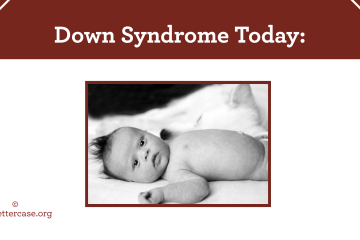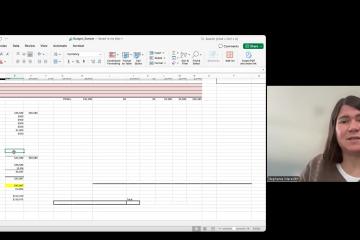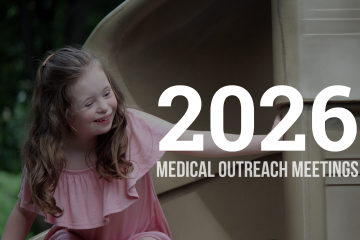Our team at UK just published a study on the experiences of patients learning about a prenatal diagnosis of Down syndrome and the information provided to them when receiving prenatal screening results. We also examined how implicit and explicit bias impacted the information they received. The article “The impact of implicit and explicit bias about disabilities on parent experiences and information provided during prenatal screening and testing” was just published in the Disability and Health Journal and is available for free from now until October 13. This is the largest study to date of parents who received a prenatal diagnosis of Down syndrome with 242 respondents, and all received their diagnosis between 2016-2021.
The article was co-authored by Stephanie Meredith, MA; Harold Kleinert, EdD; Sierra Weiss, MA; and Cameron Tyrrell, MEd., MA.
The purpose of this study was to find out what recommendations clinicians are following when delivering prenatal screening results and what factors influence the information provided. What we found was that bias significantly impacted the provision of information following screening results. We also cited some of the important recommendations from NCD’s “Genetic Testing and the Rush to Perfection” as potential solutions to solve the problem.
We learned the following:
- 61% of obstetric providers delivered the diagnosis as bad news or said “I’m sorry.” Researchers used this response as a measure for implicit bias.
- Obstetric providers were most likely to discuss medical issues (64%) and reproductive options (76%), and less than 40% discussed supports and services and life outcomes.
- Clinicians who demonstrated implicit bias were significantly less likely than their counterparts to provide more comprehensive prenatal care, information about life outcomes, information about Down syndrome advocacy organizations, available supports and services, and condition-specific resources.
- 51% of unbiased obstetric providers gave patients accurate, up-to-date, and balanced resources about DS at the moment of diagnosis in language [they] could understand while only 17% of biased clinicians did so.
- Parents described both implicit and explicit bias when receiving prenatal screening results in the past 7 years. They described being told things like “[you] could still miscarry, that nature could still correct its mistake” and being asked questions like “how does it make you feel to know that you will die and leave your baby dependent on the state? How do you feel about your child not having good quality of life?” To read more, view the tables in the document here:
Here is a link to the research manuscript and supplementary materials. Feel free to share our study with any colleagues and friends who might be interested.
What we would really love to see happen is for this study to be used like the Iezzoni study to promote advocacy for the educational infrastructure to support families and providers and also to require disability cultural competency training in obstetric medical curricula both for continuing education and residency programs.
Popular media coverage:
- UK Now article by Linda Travis: UK study: Biases in Down syndrome diagnosis leave lasting impact on families
- Time Article by Amy Julia Becker: Doctors Don’t Know How to Talk About Down Syndrome
- Impact Ethics by Stephanie Meredith: NON-DIRECTIVE PRENATAL COUNSELING: A MYTH UNDER THE SHROUD OF ABLEISM
- Stephanie Meredith | Love Is Stronger Than Fear podcast by Amy Julia Becker
- HELEN article: Improving Trauma & Disability Bias in Prenatal Screening


